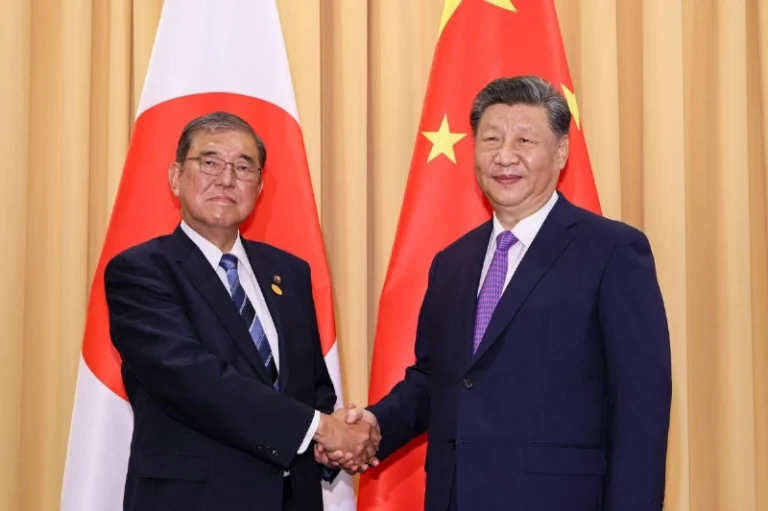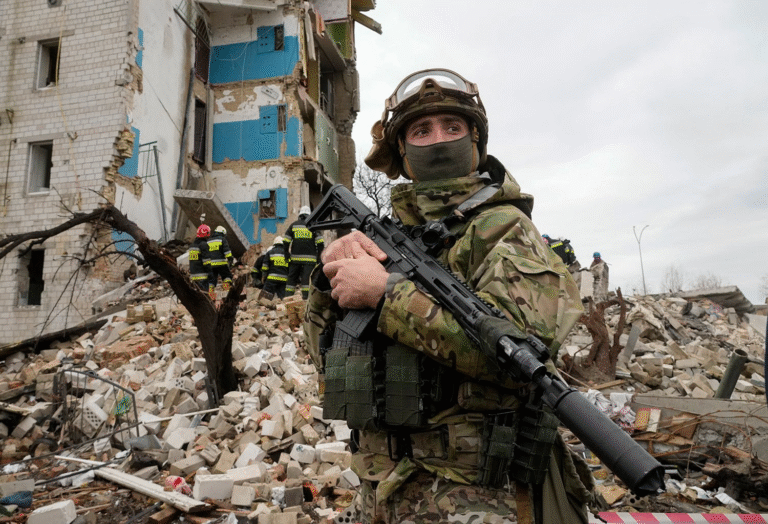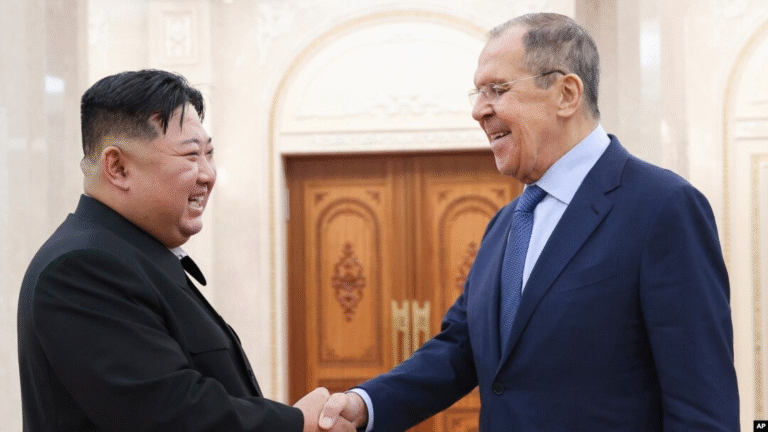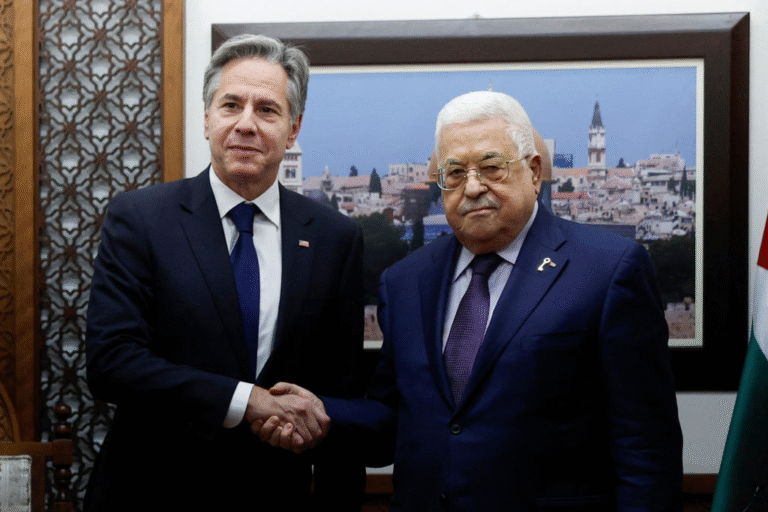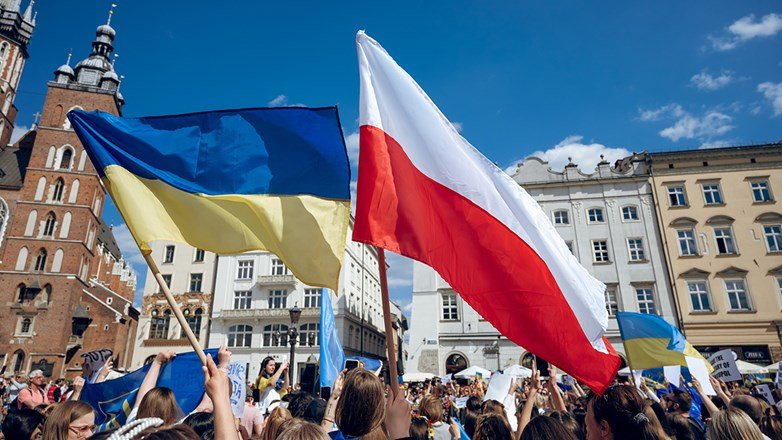
Photo Credit: Stockholm School of Economics
Stephanie Siemak
The America-Eurasia Center
US-European Program
www.eurasiacenter.org
The America-Eurasia Business Coalition
www.usebc.org
The Instrumental Role of Poland
in the Facilitation of Assistance to Ukrainian Refugees
Collaboration Among Ordinary Citizens and the Government
Since the start of the war in Ukraine, Poland has played an instrumental role in the support of Ukrainian refugees fleeing from their homes. In the first five days of the war, over 280,000 refugees had fled to Poland, as their homes and cities were being destroyed by the Russian military.1 Once the war began, the Polish government and Polish citizens quickly mobilized for the influx of refugees entering Poland.
Amid this growing refugee crisis, the Polish government immediately sprang into action after the war, adopting new policies for the facilitation of accepting Ukrainian refugees into Poland as residents. On March 18, 2022, the Polish parliament adopted a law that would facilitate aid for Ukrainian refugees.2 Under this law, those fleeing from Ukraine were permitted to stay in Poland for eighteen months following their completion of an application for a PESEL number (an identification number similar to a social security number in the United States). Under the law, local and provincial governments would be responsible for providing food and housing for refugees.3 All Ukrainians were permitted to seek work in Poland without having to apply for a permit and were entitled to access to the Polish Health Care system.4 Ukrainian children were also entitled to education provided by Polish public schools, and college students were allowed to enroll in Polish Universities.5 In consideration of the fact that a majority of the refugees coming from Ukraine were women and children, the law also accounted for the provision of various social benefits for those with children. The social benefits provided through this law included (but were not limited to) a monthly provision of 500 zloty for each child, a yearly provision of 300 zloty for school supplies for each child, and subsidized childcare.6 Furthermore, this law incentivized Polish citizens and businesses to provide aid to refugees through the monthly provision of 1,200 Zloty upon registration with the government.7 On the same day of this law being passed, the Polish government reported an estimate of 2 million Ukrainian refugees
crossing into Poland. By November 2022, the number of refugees crossing into Poland rose to 3.2 million.8
Though the Polish government played an important role in the facilitation of social benefits, employment, and residence status for Ukrainian refugees, it is also important to note the unwavering support that ordinary Poles have given. During this time, media outlets’ feeds were flooded with heartfelt pictures of Polish citizens driving to its border with Ukraine to bring food, toiletries, and other necessities to give directly to the refugees.9 Without being asked, Poles waited at the border for refugees with supplies and even offered rides to those in need.10 In addition, Poles warmly welcomed Ukrainians into their own homes. This grassroots humanitarian action was immediate, as Poles across the country rallied behind refugees once the war started. Though local and regional governments had created group shelters for refugees, few have had to rely on these collective sites for housing. According to a report from the UNHCR, by June 2022, 35 percent of refugees were staying with hosts, 34 percent of refugees were renting housing, and 15 percent were staying at collective sites.11 In what has been “the quickest growing refugee crisis in Europe since World War II” according to the United Nations High Commissioner for Refugees (UNHCR), ordinary Poles have been instrumental in facilitating aid directly for the provision for refugees.12
It is important to understand the historical underpinnings to Poles’ unmatched support of Ukrainian
refugees. Simply put, Poles know what it means to live under occupation and what it means to live under the
surveillance of Russia. Just between 1772 and 1775, Poland faced three partitions of its territory between
Austria, Prussia, and Russia. In 1918, Poland’s sovereignty was finally restored after more than a century of
foreign rule. This newfound independence did not last long, as Poland was invaded by Germany in 1939 and
did not have a defined territory until the Potsdam Conference of 1945.13 While independence was restored in
1945, the self-determination of Poland continued to be undermined with the establishment of a communist
government following Soviet-organized elections. It was not until 1989 that Poland ceased to be a Soviet
satellite state and became a democracy.14 This collective understanding of an enduring fight for selfdetermination and sovereignty has rallied a strong, heartfelt solidarity with Ukrainian citizens among Poles. Poland’s history is rooted in a striving for independence as well as freedom from Russian domination, and it certainly accounts for Poles’ support of Ukrainians as they fight for their own independence.
Though support for Ukrainian refugees remains high among Poles, the experience of their own economic troubles is inhibiting their ability to continue monetarily supporting Ukrainians through providing them with housing and food.15 Inflation is forecasted to rise to a peak of 18.8 percent in Poland during the first quarter of 2023, and an ongoing housing crisis along with rising food prices raise concern about the ability of host families to continue supporting refugees. Simply put, Poles are struggling to continue providing the same level of aid as they did at the beginning of the war.16
It is also important to note that the Polish government is also struggling to fund the support of Ukrainians. By the end of 2023, the Polish government had spent 8.3 billion dollars on aid for Ukrainians – more than any country in Europe.17 The struggle to continue this support is reflected in the adoption of more stringent policies with regard to housing and renewal of residence status for Ukrainians. Recently, the Polish parliament passed several amendments to the refugee hosting laws that were introduced in March of 2022.18 The first amendment will require refugees to pay 50 percent of the cost of government provided housing after 120 days of staying in Poland starting March 1, 2023. Following 180 days of staying in Poland, refugees will be required to pay 75 percent of the cost. Another amendment to the law will require Ukrainians to apply for temporary residence permits under the same regulations as for non-Ukrainians.19 Finally, another amendment will end previous “Covid-19 regulations” which extended the stay of all non-citizens in Poland, “the validity of residence documents”, and deadlines to apply for residence. Refugees currently staying in Poland have been granted temporary residence until August 24th and will be required to renew their residence status.20 These amendments have caused concerns over access to housing for refugees once the amendment goes into force as well concerns over challenges that Ukrainians may face when re-applying for temporary residence.
Since the start of the war, the Polish government has greatly relied on a decentralized system of aid provision, as local and provincial governments have been required to provide support for Ukrainians in the form of accommodations and housing. In addition, a great amount of the support that has been given to Ukrainians has come from private individuals and businesses. After a long period of anti-migration policies beginning in 2015, Poland has been left with a weak framework for dealing with refugee crises. In order to continue effective support for Ukrainian refugees, the Polish government must create a more centralized framework for the provision of aid and housing, as the current system in place has proven to be unsustainable.
Works Cited
- Magdalena Lesinska, “Poland: Parliament adopts law on assistance to Ukrainian refugees,” European Commission, accessed January 31, 2023, https://ec.europa.eu/migrantintegration/news/polandparliament-adopts-law-assistance-ukrainian-refugees_en.
- Lesinska, “Poland: Parliament adopts law on assistance to Ukrainian refugees”
- Lesinska, “Poland: Parliament adopts law on assistance to Ukrainian refugees.”
- Lesinska, “Poland: Parliament adopts law on assistance to Ukrainian refugees.”
- Lesinska, “Poland: Parliament adopts law on assistance to Ukrainian refugees.”
- Lesinska, “Poland: Parliament adopts law on assistance to Ukrainian refugees.”
- Lesinska, “Poland: Parliament adopts law on assistance to Ukrainian refugees.”
- Lesinska, “Poland: Parliament adopts law on assistance to Ukrainian refugees.”
- Chris Melzer, “People across Poland show solidarity with refugees from Ukraine,” The UN Refugee Agency, accessed January 26, 2023, https://www.unhcr.org/news/stories/2022/3/621dd8214/people-across-poland-show-solidarityrefugees-ukraine.html.
- Melzer, ““People across Poland show solidarity with refugees from Ukraine.”
- Jacoby, “Living in Limbo: Displaced Ukrainians in Poland.”
- Ada Petriczko, “For this border crisis, Poles extend a warm welcome, unlike last time,” New York Times, accessed January 28, 2023, https://www.nytimes.com/2022/03/08/world/europe/ukraine-refugees-poland-russia.html.
- “Partitions of Poland: Summary,” Britannica, accessed January 27, 2022, https://www.britannica.com/summary/Partitions-of-Poland
- “Poland’s Profile- Timeline,” BBC, December 2, 2022, https://www.bbc.com/news/world-europe-17754512.
- Andrew Higgins, “In Poland, a Warm Welcome for Refugees Wobbles,” New York Times, November 15, 2022, https://www.nytimes.com/2022/11/15/world/europe/poland-ukrainian-war-refugees.html.
- United Nations Office for the Coordination of Humanitarian Affairs, “Poland: Amendments to Ukrainian refugee hosting laws showcase the need for continued humanitarian support.”
- Higgins, “In Poland, Support for Ukrainians Wobbles.”
- “Poland: Amendments to Ukrainian refugee hosting laws showcase the need for continued humanitarian support,” United Nations Office for the Coordination of Humanitarian Affairs, accessed January 28, 2023, https://reliefweb.int/report/poland/poland-amendments-ukrainian-refugee-hosting-laws-showcase-needcontinued-humanitarian-support.
- United Nations Office for the Coordination of Humanitarian Affairs, “Poland: Amendments to Ukrainian refugee hosting laws showcase the need for continued humanitarian support.”
- United Nations Office for the Coordination of Humanitarian Affairs, “Poland: Amendments to Ukrainian refugee hosting laws showcase the need for continued humanitarian support.”
